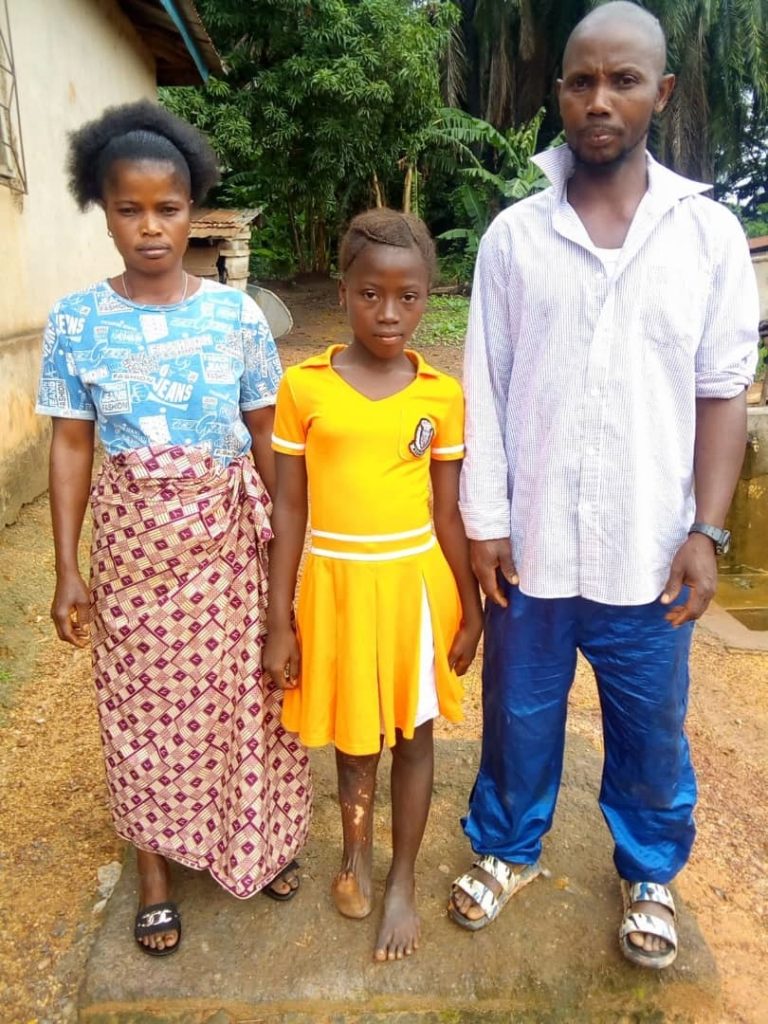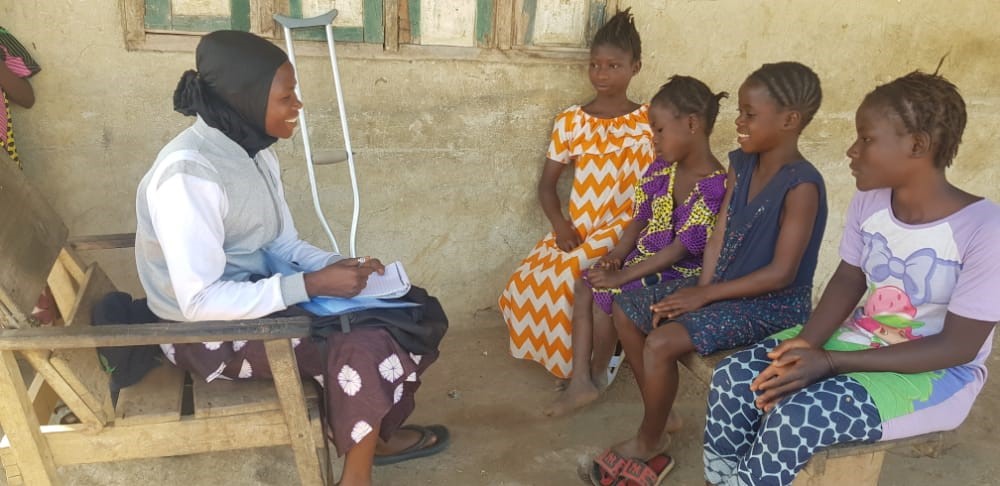Dem Sef Matters (We Matter – in Krio)
Partner: CAUSE Canada
Background
The COVID-19 pandemic, like the Ebola crisis in 2014, has jeopardized girls’ education in Sierra Leone once again. Schools were closed for long periods increasing the risk of child marriage and child labour, both of which greatly decrease the likelihood of girls returning to school after the pandemic. Furthermore, although the government implemented distance education through radio programs during the pandemic, during the 2014 Ebola outbreak, data show that only 30% of children participated in home learning. Many girls never returned to school when they re-opened since they were busy with household and income-generating activities and failed to keep up with the curriculum.
Project objectives
 The objective of this $100,000 project, Dem Sef Matter (“We Matter” in Krio), is to support out-of-school adolescent girls generally, but particularly out-of-school adolescent girls with disabilities, to return to and stay in school.
The objective of this $100,000 project, Dem Sef Matter (“We Matter” in Krio), is to support out-of-school adolescent girls generally, but particularly out-of-school adolescent girls with disabilities, to return to and stay in school.
Dem Sef Matter will target 12 communities in the Koinadugu and Falaba Districts of Sierra Leone to provide access to accelerated learning centers and Mobile Learning Labs (MLLs) to help adolescent out-of-school girls, and especially girls with disabilities, build their academic capacity to go back to school.
300 out-of-school adolescent girls ages 12-18 years (including approximately 120 girls with disabilities) will participate in the 12 accelerated learning centres located in rural communities in Koinadugu and Falaba.
Accelerated learning centers will be established in each of the 12 communities to provide access to study the curricula normally taught in school. Out-of-school girls will participate in classes for 2 hours a day, 5 days a week for up to nine months. Furthermore, the learning centers will provide an accessible space and appropriate resources for girls to undertake self-directed studies. In addition to Sierra Leone curriculum, all students will be able to access a Mobile Learning Lab (MLL) resourced with tablets and quality Offline Educational Resources, twice a week. The MLL will ensure girls have access to quality educational resources that support the learning process as well as inspire students in their learning. Where appropriate, special resources will be added to the MLL with consideration for the needs of girls with disabilities.
The project will take a holistic, sustainable approach to sending girls back to school by training leaders and Mothers’ Clubs to be advocates for girls’ education, gender equality, the right to education, and dignity for girls with disabilities. Leaders will be trained to be tutors and to help establish the accelerated learning center in their community. Mothers’ Clubs will participate in training in small business management and savings, and a small grant will be provided to each Mothers’ Club to help them generate financial resources to send girls back to school and support girls at-risk of dropping out to stay in school. Parents will be trained and sensitized on the importance of education during training workshops and home visits from Mothers’ Clubs. Families with a girl with disabilities will additionally be supported by a Champion to design a family action plan with tailored strategies to enroll and keep the girl in school.
 The project will invite six Champions with disabilities who were trained and empowered during We Lead by Sabi, an innovation project that sought to understand the impact of training women with disabilities to be leaders and champions for their rights and those of girls with disabilities. Because girls with disabilities are particularly vulnerable and many have never attended any school, Champions will work with families with girls with disabilities and the whole community via community engagement events to advocate for girls with disabilities’ access to education, and to support families to create a plan that will help girls with disabilities overcome their barriers, including social norms, in accessing education.
The project will invite six Champions with disabilities who were trained and empowered during We Lead by Sabi, an innovation project that sought to understand the impact of training women with disabilities to be leaders and champions for their rights and those of girls with disabilities. Because girls with disabilities are particularly vulnerable and many have never attended any school, Champions will work with families with girls with disabilities and the whole community via community engagement events to advocate for girls with disabilities’ access to education, and to support families to create a plan that will help girls with disabilities overcome their barriers, including social norms, in accessing education.
Finally, CAUSE Canada has identified a need to help students learn how individual actions can meaningfully contribute to preventing and mitigating climate change and environmental degradation – a cross-cutting concern that should be integrated into all education programming. Modules on climate change will be included at the centers and on the MLLs to help students understand how they can make changes to adapt to, mitigate the effects of, and stop climate change. As part of this learning and as an empowerment activity, students will be supported to participate in reforestation activities during national tree planting week. CAUSE Canada will use this experience to consider new opportunities to integrate the prevention and mitigation of climate change and environmental degradation as an ongoing crosscutting programmatic approach.
Why partner with CAUSE Canada?
CAUSE Canada has had a collaborative working relationship with 60 million girls since 2011. They were the organization with whom we initially evaluated the first concepts of the Mobile Learning Lab model starting in 2012. Their openness to explore new approaches to girls’ education and their close to 40 years of experience in the communities of northern Sierra Leone make them knowledgeable, innovative and trusted partners to work with.
With this project, 60 million girls has invested a total of $600,000 to date with CAUSE Canada in Sierra Leone.
